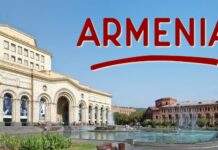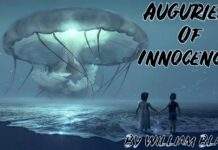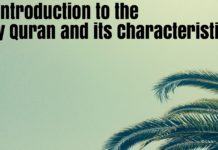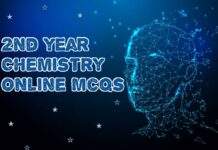Paradise Lost As a Renaissance Epic define because whenever we term any great poem of English Literature as an epic, we, first of all, recall some basic requirements or demands which an epic requires. An epic has some special traits or dimensions which are normally its grand style, theme, heroic personality of the main figure, adventurous like atmosphere, long narrative style, use of heavenly muse etc.

Let us, we discuss Paradise Lost by Milton in the light of above mentioned requirements of a great epic. When we have a careful, deep and extensive study of Paradise Lost, we come to know that Paradise Lost was written in an epic form and was modeled on the classical poems of Homer’s Ilied and Virgil’s Aeneid. Study of these poems shows that an epic is constructed on a very large scale and is concerned with a great historical event which changes the history of a nation.
Analytically speaking or categorically saying, the first essential feature of an epic is thus its theme. The epics of the past writers as Homer’s epic was based on the cultural and national level of the Greeks while Virgil’s action in the Aeneid was about the hopes and aspirations of the Romans. As for the theme of Milton’s Paradise Lost is concerned which is far above the conventional historical themes because it is a spiritual and religious one. In his long narrative poem, Milton talks about the fall and redemption of man and hence this very theme is of universal appeal than the particular national themes of classical poets. The theme of Paradise Lost concerns with all humanity. Like the typical’ opening of an epic, Paradise Lost begins with the declaration of the above theme. From the very starting of the poem, we come to know that Milton intends to give his epic a more sublime status than that of his predecessors. As far as his moral purpose is concerned, it is more ambitious, sublime and comprehensive.

The very second quality of an epic which strikes our imagination is its action. According to Aristotle’s point of view, it should be one, entire and great. From this point of view, Milton is a very successful poet because he fulfills all the set pattern dimensions of an action of a great epic. We find a unity of action in Paradise Lost, for the action of the poem. revolves round the fall of man. Milton contrives the action in : hell which is executed on earth and finally punished by Heaven. By the greatness of an action we mean that it should be great not only in its nature, but also in its time scheme which takes into account the moment before the creation of the world of the day of judgement. When we compare Milton‘s subject matter with the subject matters of Homer’s and
Virgil’s, we come to know that Milton’s subject matter is of more significance than the subject matters of Homer’s, Ilied and Virgil’s Aeneid in their nature, time scale and space. It is well acknowledged that the characters of an epic must have dignity and should be appropriate to their superior nature. We see in the Paradise Lost that the characters of Adam, Eve, Satan, the good and evil angels, Christ and God are much more dignified than the characters of Achiles, Aeness and Dido. There is no doubt in saying that the characters of Adam and Eve are especially true representatives of universal human nature.
Another very striking quality or feature of an epic is ) that an epic is a serious poem in which adventures and heroic deeds of great warriors are described. Milton’s Paradise Lost also satisfies this criterion. Though some critics had raised objections in this regard and pronounced even Satan the hero of the poem yet their objection was not on sound and solid reasons. Milton has very carefully, openly and aptly. condemned Satan’s heroism which had been based on hatred, pride, selfishness, enmity and revenge. Milton had condemned such kind of heroism and in other words, it was indirect condemnation of the traditional concepts of heroism depicted by Greek and Latin epic poets because such heroism was the outcome of pride and self-love. He has rather given a new concept of heroism through the character of Adam. This is such a kind of true heroism which is deeply rooted in Christianity as contrasted to paganism.
A great epic always gives the lesson of moral values because an epic is always a didactic and moral poem. Now, if we analyse Paradise Lost in this regard then we also come to know that it is highly grand because it is a religious moral poem which is not restricted to one period, one history or one nation or community.

Milton had very vehemently and openly declared that his main purpose of writing Paradise Lost was to “justify the ways of God to man”.
He did so because he wanted to show the soundness, respect aptness of religion and the necessity of obedience to Divine Law. In other words, we can say that the superiority and supremacy of religion must be followed on their true contents.
An epic is a conventional poem which itself has the history of the past adventures, events and happenings. It is always carefully decorated by the description of various episodes of games, debates, battles, voyages, visits to the underworld, invocation to Muse and long speeches. Paradise Lost is such a poem which absolutely satisfies all the above mentioned conventions of an epic.
In Book-II, we see that Milton describes the debates of the fallen angels. He presents a graphic description of Satan’s voyage from Hell to Earth. As we know that the Heavenly Muse is of great importance in an epic, so Milton invokes the Heavenly Muse to help him in his great task of writing the poem. Here one thing is very worthy to note that Milton’s Muse is not one of the Nine Muses of Greek mythology. He invents a Christian Muse whose very name Urania is different from the names of the Nine Muses. She is the heavenly Muse and not the Muse who lives on Mount Olumpus. Where Classical muses belong to history, philosophy, literature, science and so on. On the contrary, Milton’s Muse is the Muse of religious poetry who inspired and affected the poets and prophets of Israel and Christianity. She is in fact, the Holy Spirit – Being of God; who would take him higher than the Aonian Mount.
It is one of the great traits of art of writing of Milton that he had an ability to mix pagan mythology with Christian theology in such a way which appealed to the readers of all the racial communities. That’s why, by mixing pagan mythology with Christian theology, Milton makes his poem grander than the classical epic poems.
As it is universally acknowledged that Milton’s Paradise Lost has its own uniqueness of its grand style which makes his long narrative poems more powerful than the other epics. Milton introduces a new style which is called the grand style by Arnold. After having presented or adopted the sublime, theme, action, characters and moral purpose, Milton was not unaware of a grand style. So Milton was compelled to invent an answerable style which should have been sufficiently elevated and sublime. As writing about sublimity, Aristotle commented that it could be achieved by the use of metaphors; by adding the idioms of other languages and by lengthening of phrases.
Milton makes the best use of all these above mentioned Aristotelian methods and employs them in the required sentences of the poem. In order to make his style of writing as a great one, in addition to these, Milton makes use of Homeric similes which uplift the level of appeal as well as the style of the poem. One of the best uses of Homeric similes is the comparison of Satan with Leviathan. The beauty and charm of this analogy lie in the underhand moral implicate Satan is as huge as Leviathan, he is as tricky and destructive as the sea animal.
Keeping all the above mentioned points in mind, now we come towards the conclusion and can say this reality vehemently and forcefully that Milton’s Paradise Lost fulfills all the set pattern requirements and demands of any great epic of English Literature as well as her literature of the world. Modern critics like C.S. Lewis and Frank Hermode consider Paradise Lost a superior kind of ‘secondary epic’ to any thing of antiquity. So, Milton had not only followed the epic for and its conventions but also expanded the scope and range of this kind of poetry. As it is acknowledged that the theme of “Paradise Lost” is of universal kind in its appeal and it is fact that no other form except an epic would have been suitable because it was an epic form in which Milton could give his poem a full fledged flow of his imagination.


























